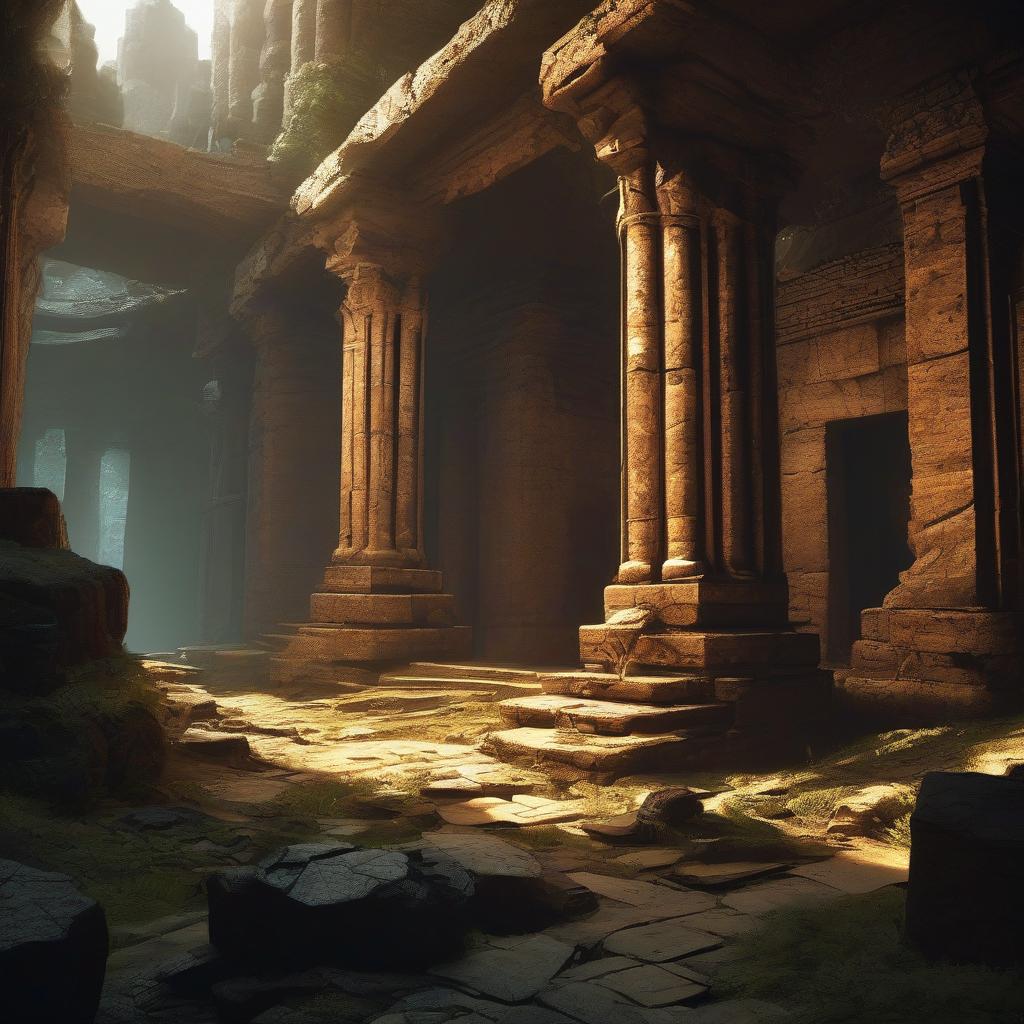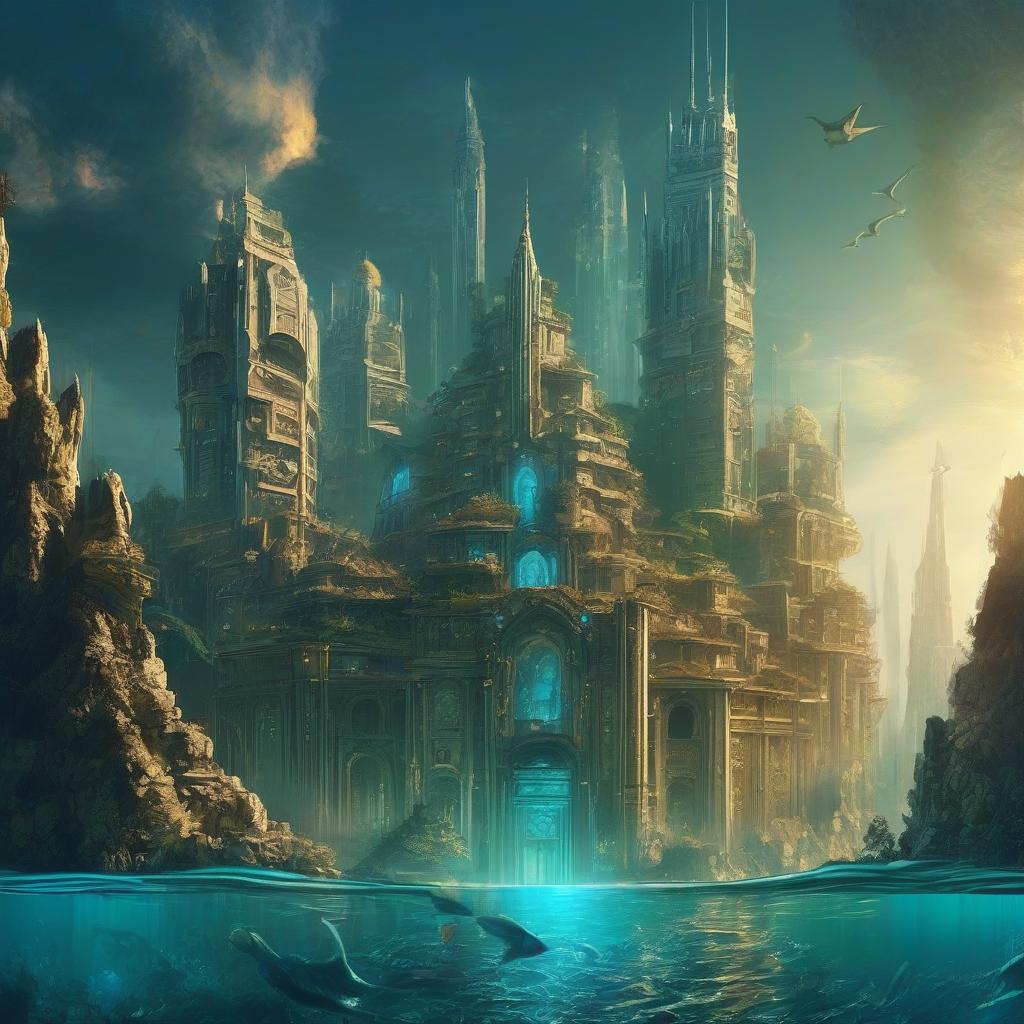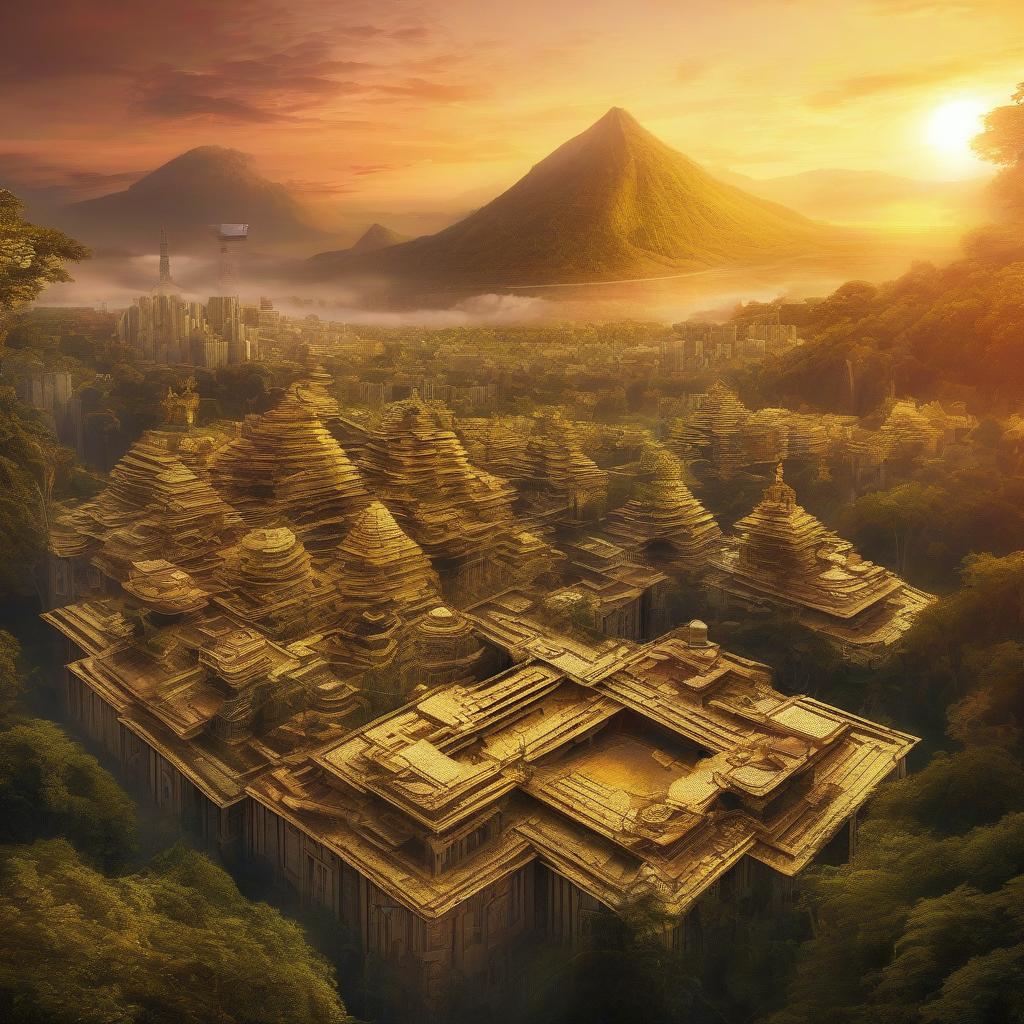
Lost civilizations have long captivated our collective imagination, their enigmatic tales whispered through the corridors of time. These societies, once vibrant and flourishing, vanished into the mists of history, leaving behind tantalizing clues and unanswered questions. In this exploration, we delve into the realm of lost civilizations, comparing and contrasting the infamous Lost City of Z with other mythical cities that have captured the attention of explorers and dreamers alike.
The Lost City of Z: A Haunting Quest in the Amazon

Deep within the uncharted depths of the Amazon rainforest lies a legend that has enthralled adventurers for centuries – the Lost City of Z. Percy Fawcett, a British explorer, repeatedly ventured into the jungle in an effort to find the remains of an advanced civilization he believed had once flourished there because of his unwavering belief in its existence. Fawcett’s obsession with Z stemmed from a confluence of factors, including ancient indigenous accounts, enigmatic ruins, and a fervent desire to rewrite history.
Despite his relentless pursuit, Fawcett and his companions disappeared without a trace in 1925, their fate shrouded in mystery. Their disappearance only served to amplify the legend of Z, transforming it into an enduring enigma that continues to beckon explorers and archaeologists to this day. The Lost City of Z represents a tantalizing glimpse into the possibility of a forgotten civilization, a beacon of hope for those who seek to uncover the hidden truths of our past.
Atlantis: The Sunken City of Legend

Atlantis, a utopian island empire that the Greek philosopher Plato first mentioned, has come to represent vanished civilizations. According to Plato’s account, Atlantis was a technologically advanced society, boasting magnificent architecture, intricate canals, and a powerful military. However, due to its hubris and moral decay, Atlantis incurred the wrath of the gods, who unleashed a cataclysmic event that submerged the island beneath the waves.
While some scholars believe Atlantis to be a cautionary tale invented by Plato to illustrate his philosophical ideas, others maintain that it was a real civilization, perhaps inspired by the Minoan civilization on the island of Crete, which was devastated by a volcanic eruption around 1600 BCE. The legend of Atlantis has endured through the ages, inspiring countless works of fiction, scientific expeditions, and even conspiracy theories. Its enduring appeal lies in its portrayal of a lost paradise, a reminder of the fragility of human achievements in the face of nature’s power.
El Dorado: The City of Gold

In the heart of South America, the legend of El Dorado, the mythical city of gold, has fueled the dreams and ambitions of countless explorers. The story of El Dorado originated with the Muisca people of Colombia, who practiced a ritual in which their chieftain would cover himself in gold dust and plunge into Lake Guatavita, offering treasures to the gods.
When Spanish conquistadors arrived in the 16th century, they became obsessed with the tale of El Dorado, embarking on numerous expeditions in search of the fabled city. Their quest led them deep into the treacherous jungles and mountains of South America, but despite their efforts, they never found the city of gold. El Dorado remains a potent symbol of the human desire for wealth and adventure, a testament to the enduring power of myth and the allure of the unknown.
Shambhala: The Hidden Kingdom of Enlightenment

Nestled amidst the snow-capped peaks of the Himalayas lies the legend of Shambhala, a hidden kingdom said to be inhabited by enlightened beings. In Tibetan Buddhist tradition, Shambhala is a utopian realm where peace, harmony, and wisdom prevail. It is said to be accessible only to those who are pure of heart and spiritually advanced.
The legend of Shambhala has inspired generations of spiritual seekers and adventurers, who have embarked on perilous journeys in search of the hidden kingdom. Some believe that Shambhala is a real place, perhaps located in a remote valley or cave, while others interpret it as a metaphor for inner peace and enlightenment. Regardless of its physical existence, Shambhala continues to serve as a powerful symbol of hope and inspiration, reminding us of the potential for human transformation and the pursuit of a higher consciousness.
Comparing and Contrasting Lost Civilizations
While each lost civilization possesses its own unique allure, several common threads weave through their narratives. These civilizations often represent idealized societies, embodying values and aspirations that resonate with our deepest desires. They serve as cautionary tales, warning of the dangers of hubris, moral decay, and the destructive forces of nature.
The Lost City of Z, Atlantis, El Dorado, and Shambhala also share a common theme of exploration and discovery. Their stories have spurred countless expeditions, pushing the boundaries of human knowledge and challenging our understanding of the past. The enduring appeal of these lost civilizations lies in their ability to spark our imagination, ignite our sense of wonder, and inspire us to seek out the hidden truths of our world.
Conclusion
The allure of lost civilizations lies not only in their enigmatic histories but also in their ability to reflect our own hopes, fears, and aspirations. Whether they existed in reality or solely in the realm of myth, these lost societies continue to captivate our collective imagination, inspiring us to explore the unknown, question our assumptions, and seek out the hidden truths of our past.
As we delve into the mysteries of the Lost City of Z, Atlantis, El Dorado, and Shambhala, we embark on a journey of discovery that not only illuminates the past but also sheds light on our own potential for growth, transformation, and enlightenment.
POPULAR TODAY
Project Blue Beam is a conspiracy theory that suggests NASA or other governmental agencies are plotting to implement a new world order by simulating a second coming through holograms.
